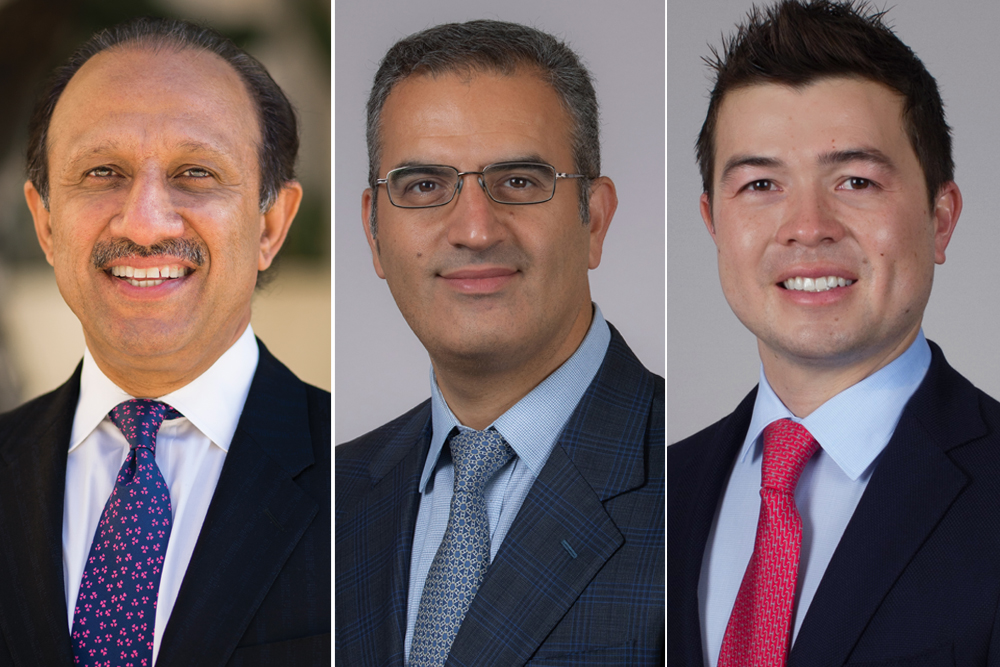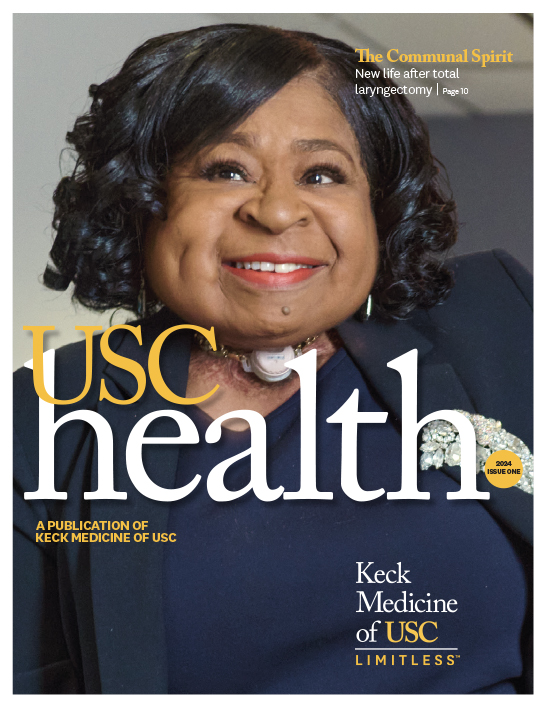
Experts at Keck Medicine of USC explain key issues that can affect men’s urological health — and what to expect at regular screenings.
Routine urological screenings can be among the toughest to get, whether out of embarrassment, fear or even simply not knowing which screenings to get at what age.
When it comes to feelings of embarrassment, Jeffrey Loh-Doyle, MD, a urologist with Keck Medicine’s USC Urology, states that it’s important for clinicians to address those feelings: “It’s our job to make you feel as comfortable as possible.”
His colleague Hooman Djaladat, MD, adds, “Men’s health and screening is very important. When tumors are detected early, the chance of cure is much, much higher.”
But some of the toughest folks out there can feel more than embarrassed — they may even be afraid.
To relieve any fear or embarrassment, these two experts, along with USC Urology’s Founding Executive Director Inderbir S. Gill, MD, have explained what patients can expect.
When to get a prostate cancer screening
When you turn 50, it’s a good idea to start yearly prostate exams. If you have a family history of prostate cancer, start at 40.
“Those in the African American community should be more vigilant,” says Dr. Gill, Distinguished Professor and chair of the Catherine and Joseph Aresty Department of Urology, Shirley and Donald Skinner Chair in Urologic Cancer Surgery and associate dean of clinical innovation at the Keck School of Medicine of USC.
“There is some evidence that if they have cancer, it may be late to be detected and may potentially have more aggressiveness to it.”
He adds that if you have symptoms like difficulty urinating, go in right away. The exam consists of a quick, painless digital exam of the prostate and a blood test to check your prostate-specific antigen (PSA) levels.
Screening for testicular cancer starts at home
It’s one of the most common cancers among young people, with the typical patient’s age between 25 and 39. So it’s a good idea to do a self-check in the shower every now and then.
If you go to the doctor with a mass, they’ll feel it and give their assessment.

“The good thing is that men typically have two testicles so there’s usually a normal testicle to compare to,” says Dr. Djaladat, who is a professor of clinical urology at the Keck School. “We also examine the abdomen and the groin because this cancer typically spreads to lymph nodes.”
They’ll also check the lymph nodes in your chest, give you a blood test, or even a scrotal ultrasound, if needed.
Impotence can prompt cardiovascular disease screeening
If erectile dysfunction happens regularly, it’s time to see a doctor.
“If you are over 30 and have erectile dysfunction, we screen for cardiovascular disease because it’s one of the earliest signs of heart problems,” says Dr. Loh-Doyle, an assistant professor of clinical urology at the Keck School.
He adds that many patients come to him without having another doctor.
If this is you, USC Urology physicians will refer you to a Keck Medicine doctor in internal or family medicine to check your heart health. This integrated care provides an important advantage: keeping everyone involved in the loop.
All three of these doctors agree that the best way to stop being embarrassed or afraid is to just get checked.
You’ll either get professional confirmation that everything is OK, or — if your results come back concerning — you’ll at least know that a dangerous disease was caught early, when it’s easiest to treat.
Topics


